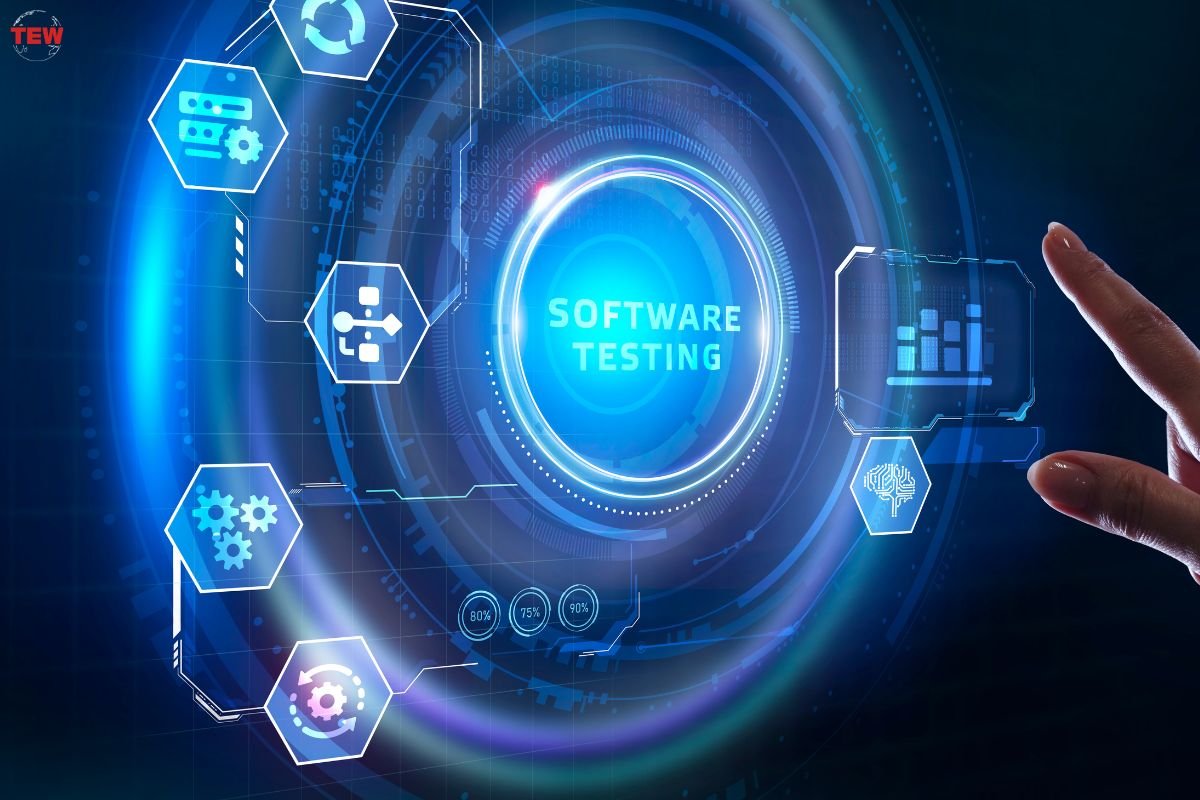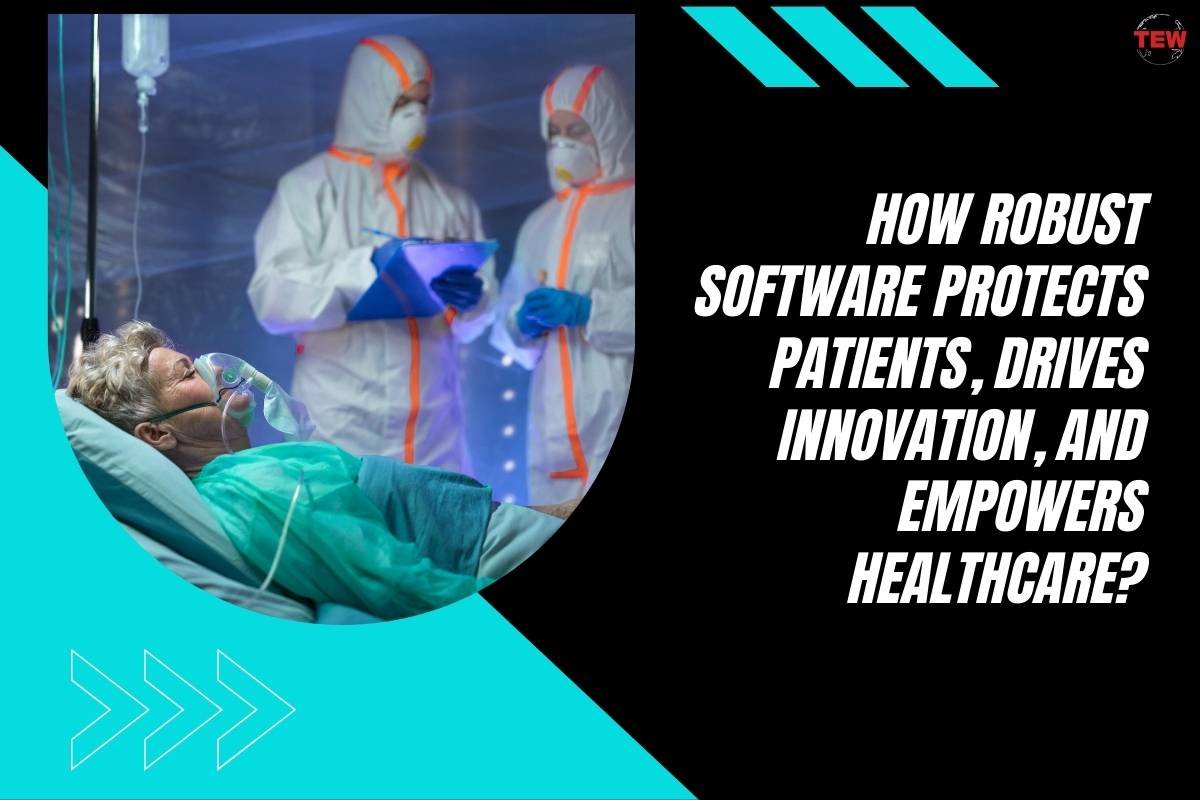The financial impact of software data breaches on US healthcare businesses averaged a staggering $8.64 million. What does this tell us? This shows that strict security measures and reliable testing are simply invaluable in the field of healthcare. This article will examine the unique challenges facing the healthcare industry. Through our research, we aim to highlight the paramount importance of protecting patient data and ensuring the integrity of healthcare systems against ever-increasing cyber threats.
Types of Healthcare Software:
Healthcare software includes various programs to improve healthcare delivery, streamline operations, and improve patient outcomes. Of course, here are some common types of healthcare software:

1. Electronic health records (EHRs)
EHRs store patient health information in a digital format, including demographics, medical history, allergies, medications, lab results, and more. EHRs can be used by doctors, nurses, and other healthcare professionals to:
- track patient care,
- make informed decisions about treatment,
- improve coordination of care,
- reduce medical errors,
- enhance patient satisfaction.
2. Practice management software
Practice management software helps healthcare providers manage the administrative tasks of running a practice, such as:
- scheduling appointments,
- tracking billing and insurance,
- managing patient records,
- communicating with patients,
- managing staff.
Practice management software can help healthcare providers to:
- improve efficiency,
- reduce costs,
- improve patient satisfaction.
3. Telehealth software
Telehealth software allows healthcare providers to deliver care to patients remotely. This can be done through video conferencing, e-visits, and remote monitoring. Telehealth software improves access to care, reduces costs, and enhances patient satisfaction by providing convenient and swift medical services.
4. Medical billing software
Medical billing software helps providers bill patients and insurance companies for services rendered. Medical billing software help automate billing tasks, significantly improving cash flow and efficiency, while saving the costs.
5. Clinical decision support (CDS) software
CDS software helps healthcare providers make informed decisions about patient care.
- provide evidence-based recommendations for treatment,
- identify potential medication errors,
- track patient outcomes.
CDS software can help healthcare providers to:
- improve the quality of care,
- reduce costs,
- improve patient safety.
6. Population health management software
Population health management software helps healthcare providers track the health of a population of patients.
- identify trends,
- target interventions,
- improve the quality of care.
Population health management software can help healthcare providers to:
- improve the health of their population,
- reduce costs,
- Improve patient satisfaction.
These are just a few of the many types of healthcare software available. The specific type of software that is right for a healthcare provider will depend on their individual needs and requirements.
At Luxe Quality, we understand the importance of healthcare software testing. It provides secure and rapid patient data access, supports accurate billing and inventory management, and ultimately contributes to better patient outcomes.
Why is Healthcare Software Testing so Important?

In healthcare, every click and command in software matters. At Luxe Quality, we understand this better than anyone. When we test medical software, we don’t just check if the save function in the electronic patient record works. Our goal is to make our systems not only technically advanced but also easy and safe for the people who work with them daily.
- Deep understanding of the medical field: Our testers are constantly upgrading their skills to better understand medical procedures and the needs of medical professionals.
- Data security testing: We put data protection first because we understand the value of privacy in medicine.
- User interface testing: We believe that software should be easy to understand and user-friendly. So, we examine it from the perspective of doctors, nurses, administrators and the patients themselves.
- Compliance check: Each product undergoes a series of tests to ensure compliance with international medical regulations and standards such as HIPAA and GDPR.
- Adaptability to change: The medical industry is rapidly evolving, and we are always ready to test software that must adapt to new challenges and requirements.
These principles form the basis of our approach to healthcare software testing services and reflect our commitment to professionals and patients who rely on the high quality and reliability of healthcare systems.
We have a list of specialists with extensive experience in providing healthcare testing services. They pay attention to all the features of the project, even the smallest ones.
Types of Healthcare Software Testing Services

Healthcare testing services are specialized offerings designed to guarantee that healthcare applications meet the highest functionality, security, usability, and compliance standards. These services are essential due to the complex nature of healthcare applications, which handle sensitive patient data and are integral to patient care processes. Here’s an overview of the primary types:
1. Functional Testing Services
These tests ensure that the healthcare software performs its intended functions correctly. Functional testing covers all the basics, from patient data entry and management to medical billing processing and the execution of clinical workflows. It ensures the software meets all specified requirements and behaves as expected in all scenarios.
2. Security Testing Services
Given the sensitive nature of healthcare data, security testing is crucial. Security testing includes penetration testing, vulnerability scanning, and risk assessments, ensuring compliance with healthcare regulations like HIPAA and GDPR.
3. Performance Testing Services
Performance testing assess the software’s speed, stability, and scalability under various conditions. It is critical for healthcare applications, which must handle high user requests and data processing volumes without compromising speed or reliability. This testing guarantees the software can perform well under peak loads, such as during health emergencies or widespread outbreaks.
4. Usability Testing Services
Usability testing evaluates how user-friendly the healthcare software is for its end-users, including doctors, nurses, administrative staff, and patients. This type of healthcare software testing assesses the software’s interface, navigation, and overall user experience to identify any issues hindering its effectiveness or adoption.
5. Compliance Testing Services
Healthcare software must adhere to a range of regulatory standards and guidelines. Compliance testing makes sure that the software meets all legal and regulatory requirements, such as those specified by HIPAA, FDA (for medical devices), and other relevant healthcare compliance standards. This testing is crucial for avoiding legal issues and penalties.
6. Disaster Recovery and Backup Testing Services
It tests the software’s ability to recover from catastrophic failures and ensure that data can be quickly restored from backups. This type of healthcare testing services is critical for maintaining continuity of care and protecting patient data during system outages or disasters.
By leveraging these specialized testing activities, healthcare organizations can ensure their software applications are reliable, secure, efficient, and compliant with industry standards. This comprehensive approach to healthcare software testing services is fundamental to delivering high-quality care and protecting patient information in the digital age.
Conclusions
Robust healthcare software, encompassing everything from electronic health records to telemedicine platforms, is foundational to modernizing patient care, enhancing operational efficiency, and fostering innovation within the healthcare sector. The significance of rigorous testing for these systems cannot be understated, as it ensures the reliability, security, and regulatory compliance essential for safeguarding patient data and optimizing healthcare delivery.






